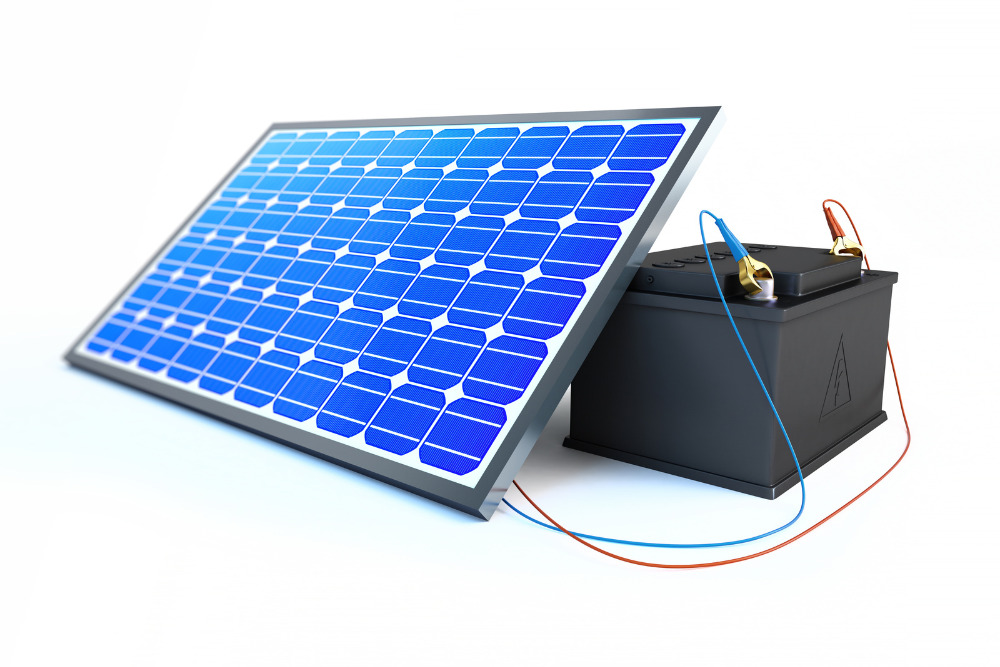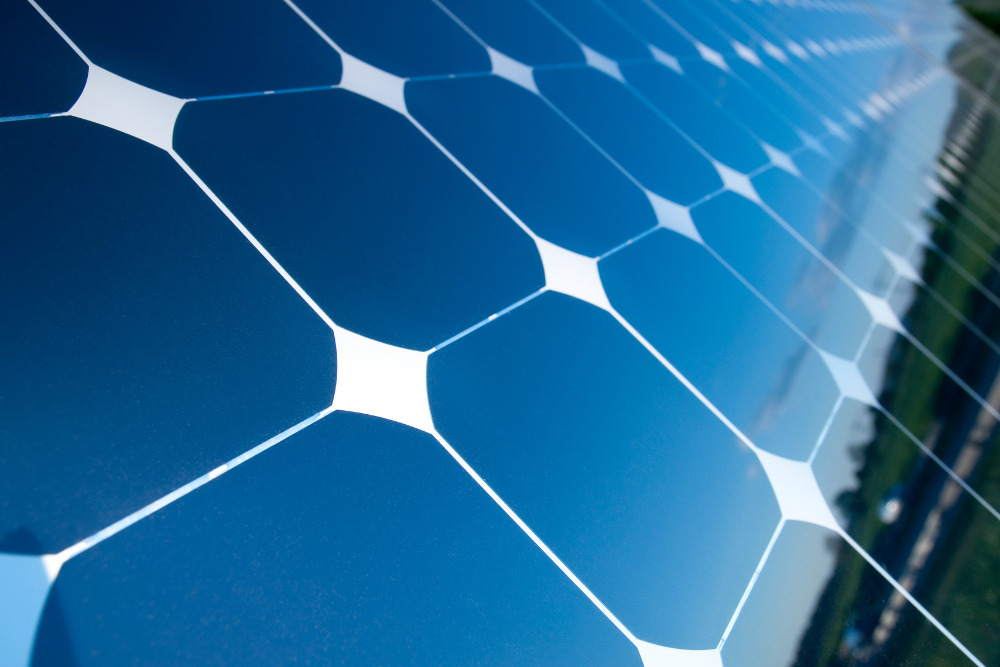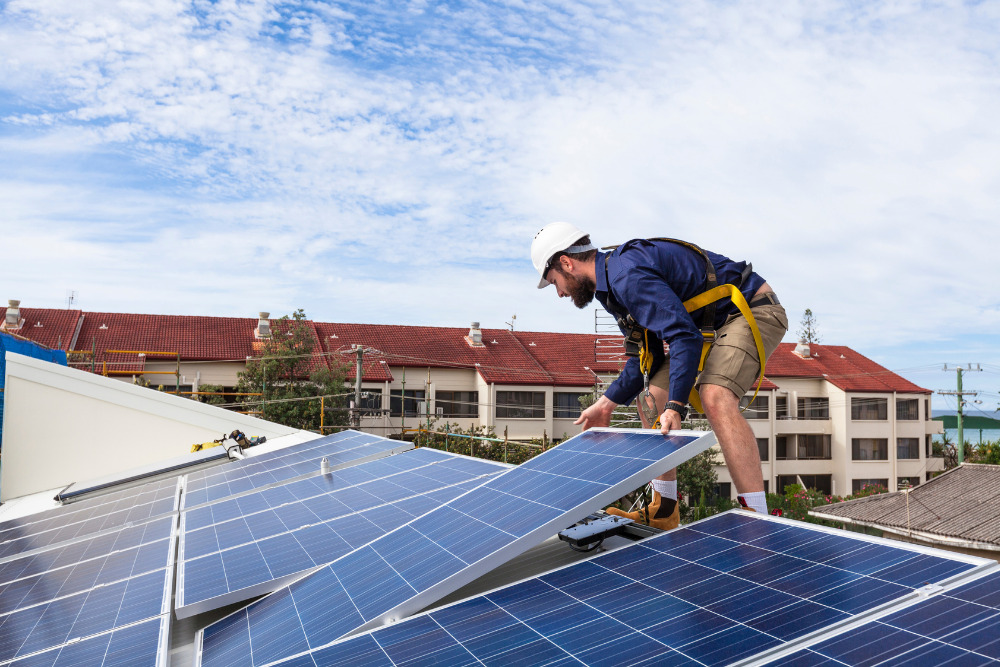
With trends in environmental consciousness, hotel owners are shifting to solar energy systems to power their facilities. And this opens doors for numerous benefits like cost savings on electricity, improved customer experiences, and enhanced brand image.
The hospitality industry is one of the sectors with the highest energy demand. Hotels and resorts need massive energy to power systems and amenities to ensure their guests are comfortable. This high power consumption contributes to hefty utility bills that can be offset with large-scale solar PV systems.
Can Solar Panels Power A Hotel?
Solar panels are capable of powering a hotel, meeting all of its energy needs or significantly reducing its energy bills.
Although most hotels rely on electricity and natural gas, any hotel can benefit greatly from solar power. Solar power systems provide clean, efficient, and reliable energy to run different energy-demanding operations, including:
- Catering
- Charging stations
- Elevators
- Entertainment
- Hot water heaters
- HVAC (heating, ventilation, and air conditioning)
- Laundry
- Lighting
- Office equipment
- Refrigeration
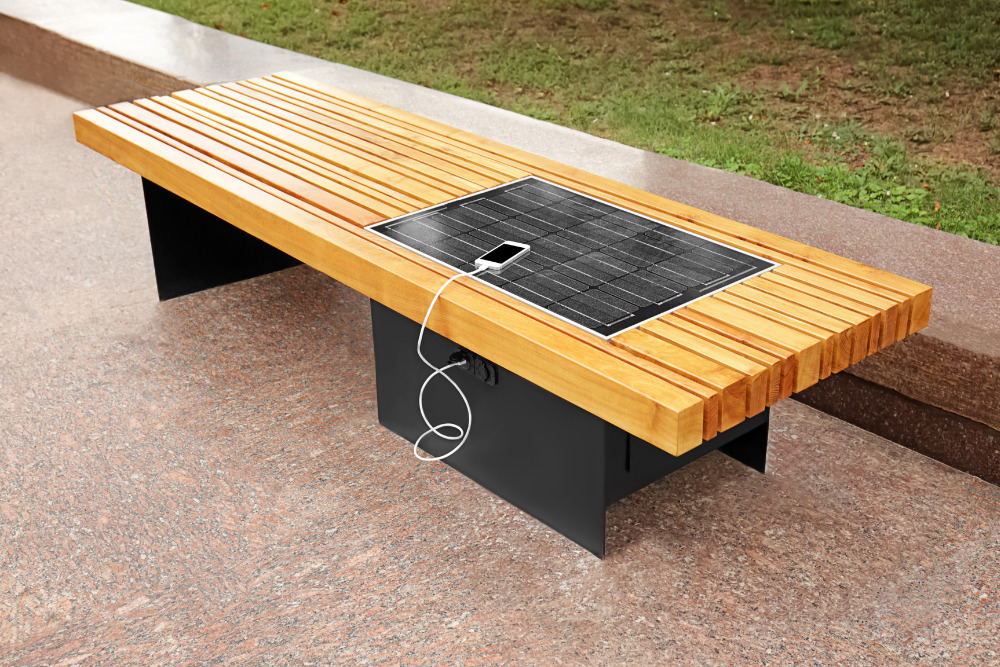
Hotels differ in size and the range of amenities offered to their guests, so their energy consumption also varies. Large hotels may need thousands of solar panels spread over several locations to meet their energy requirements. A small boutique hotel might require less than a hundred solar panels to power all operations.
The number of solar panels needed to power a hotel depends on its:
- Amenities
- Energy requirements
- Financing capacity
- Location
- Size and available installation space
What Hotels Use Solar Power?
Many modern hotels and resorts worldwide use solar power as their primary or secondary energy source.
Hotel owners are taking a leap in sustainability by adopting solar energy to power their premises. These hoteliers have realized the environmental benefits and energy savings of harnessing energy from the sun.
Here are some examples of solar-powered hotels and resorts:
- Courtyard by Marriott-Lancaster - This 133-room hotel in Pennsylvania is 100% solar-powered. Its solar power system comprises 2,700 panels generating 1.2 million kilowatt-hours (kWh) annually. Courtyard by Marriot-Lancaster is also the first Marriot-branded hotel in the U.S. to meet all its energy requirements from solar power.
- Waianuhea Eco Resort - As the name suggests, Waianuhea B&B is an eco-friendly facility in Honokaa, Hawaii. This remote, off-grid 4-star facility generates all its energy from a solar P.V. (photovoltaic) system. And it uses locally-sourced products and harvested rainwater in meal preparation and other operations.
- Frangipani Beach Resort, Anguilla - Located in the British West Indies, this resort uses 800 solar panels to meet 70% of its energy needs. The 370-kWh solar power system is installed on approximately one-quarter of an acre of Frangipani Beach Resort's main entrance.
- Kudadoo Maldives - A private island resort in Maldives, Kudadoo won the esteemed Hospitality Design Award for sustainability. It relies on a 340-kWp solar power array to power its overwater bungalows fully. The installation design minimizes energy use through panel gaps and a large canopy.
- Campi ya Kazi, Kenya - Africa's first fully solar-powered safari lodge. The eco-lodge has bagged several awards, including the World Legacy Award and the Eco-Tourism Award, for reducing its carbon footprint through sustainable energy.
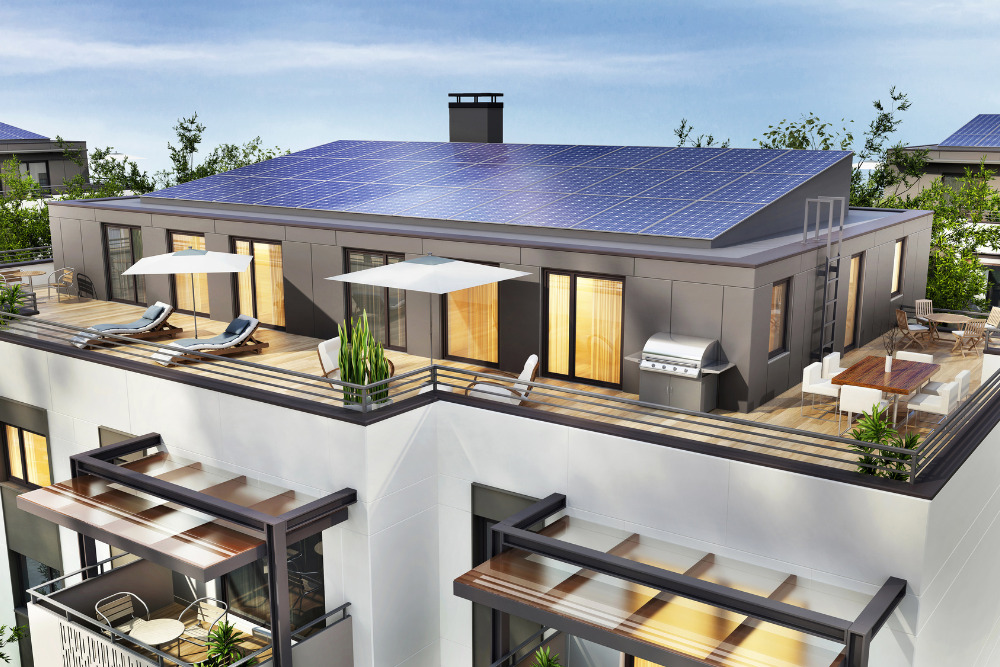
How Much Money Can A Hotel Save Using Solar?
On average, a hotel can save 30-50% of its energy expenses by using solar energy. This can be higher or lower depending on factors such as the size of the solar power system, time of year, and fluctuating energy consumption.
Although large-scale solar power installation is a big upfront investment, it saves on operating costs in the long-run. According to the U.S. Department of Energy, American hotels have saved approximately $290 million on energy and water expenses since 2011 by improving energy efficiency.
Hotels that switch to solar energy save money in the following ways:
- Reduced or eliminated utility bills: Solar is renewable energy. Once it goes live, a hotel starts saving on electricity and natural gas costs immediately. Once the solar system pays for itself, a hotel can have zero utility expenses if it runs entirely on solar power.
- Tax incentives: Like other business owners, hoteliers shifting to solar energy benefit from the federal government's Investment Tax Credit (ITC). Also, many states offer additional tax credits, incentives, and rebates to encourage hotels and businesses to switch to solar.
- Cost-friendly financing options: Solar installation is expensive, and many hoteliers can't afford the upfront costs. But many solar companies and financial institutions offer several financing options like grants and solar loans for businesses seeking solar solutions.
- Increased cash flow and potential income: Reduced electricity bills frees up cash for hotels to use on other things, like upgrading amenities and improving the guest experience. They can also use net metering to sell excess energy back to the grid. They can even supply the generated solar power to neighboring homes and businesses if it exceeds their energy needs.
What If A Hotel Doesn't Have Enough Roof Space For Solar?
Although rooftops are the best areas for solar panels, other options exist.
Here are other areas to install solar panels in hotels with limited roof space:
- Pool area: Having canopies in the pool areas shields guests from the scorching sun, and these shades can also be ideal spaces to install solar panels.
- Parking lot: Shaded carports are valued amenities for hotel guests. Hotel owners can create a win-win by installing solar panels on the parking lot canopies.
- Outdoor seating areas: Hoteliers can create shaded seating areas with overhead solar canopies. Solar-powered benches and charging tables give guests a place to unwind and recharge.
- Unused or underutilized grounds: Hotels with large land tracks are perfect for ground-mounted solar systems. This is also an excellent branding opportunity for hotels to use SolarSkin overlays to customize the panels. Guests in their rooms can look down upon the ground solar array and see whatever design the hotel chose—whether a cleverly placed promotion or a one-of-a-kind work of art.
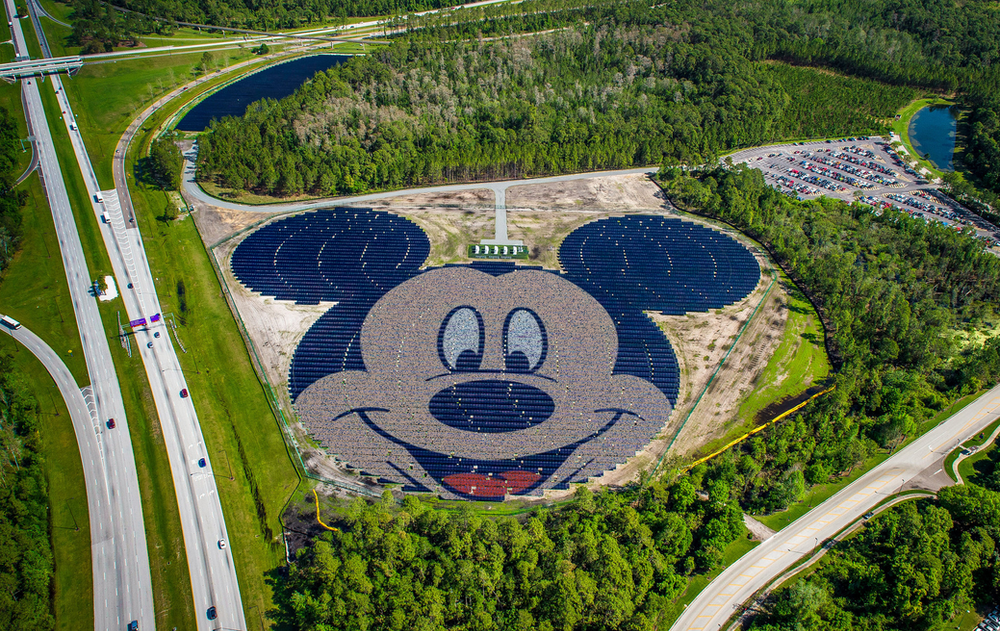
How Much Do Solar Panels For A Hotel Cost?
Commercial solar panel installation averages $2-$4 per watt, but this amount varies depending on several factors.
The Solar Company
Solar companies provide solar panels and installation services at varying prices. Some have different quotes depending on what's offered in a specific package. Large (or national) companies usually have higher solar panel installation costs than local providers.
However, national companies tend to be known for reliable, high-quality service and robust warranties.
The Type of Solar Panels
Solar panels differ in size, material, efficiency, and durability. Due to such disparities, the cost of installing a solar panel will depend on its type. For instance, monocrystalline solar panels cost more than polycrystalline types due to their high energy efficiency and durability.
Thin-film solar panels are cheaper than monocrystalline solar panels since they're less efficient, but that means a hotel will need to have a much larger installation space to generate the same amount of power.
Number of Solar Panels Required
A hotel's energy needs determine the size of its solar power system. Naturally, more solar panels increase upfront costs.
Ease of Installation
Installing solar panels on regular, flat, or angled rooftops is straightforward. Complex roofs or unique installation locations can add to the costs.
Location or Region
Hotels in hot or desert climates can generate more solar power with fewer solar panels than in colder regions. Plus, hoteliers in hotter regions enjoy more state incentives and lower solar panel installation costs.
Also, hotels in places with high power costs will have more cost savings on solar in the long run, especially if they reach their break-even point in less than ten years.
Beyond Reducing Operating Costs, What Are The Benefits Of Going Solar For Hotels? For Guests?
Besides reduced operating costs, hotels enjoy other benefits of solar energy, like green marketing and improved customer experiences.
Here are the advantages of switching to solar for hotels and guests:
- Sustainability: Since solar is renewable energy, it's good for the environment. It's also efficient and reliable. Hence, hotels contribute to lowering harmful emissions by generating clean, sustainable energy.
- Improved customer experience: Hoteliers leveraging solar energy can provide top-notch services to their guests. For example, electric vehicle charging stations, solar-powered carports, and outdoor lighting are attractive amenities that boost hotels' occupancy rates.
- Employee retention: Using solar energy also creates an eco-friendly environment for employees. Hotel owners that use solar may be more likely to retain talent since their staff are happier and feel their vision aligns with their employer.
- Green marketing: In an era of environmentally-conscious consumers, there's no better way for hotels to earn a good reputation and high LEED ratings than by going green. Guests looking to lower their carbon footprint will seek out and favor solar-powered hotels while traveling.
